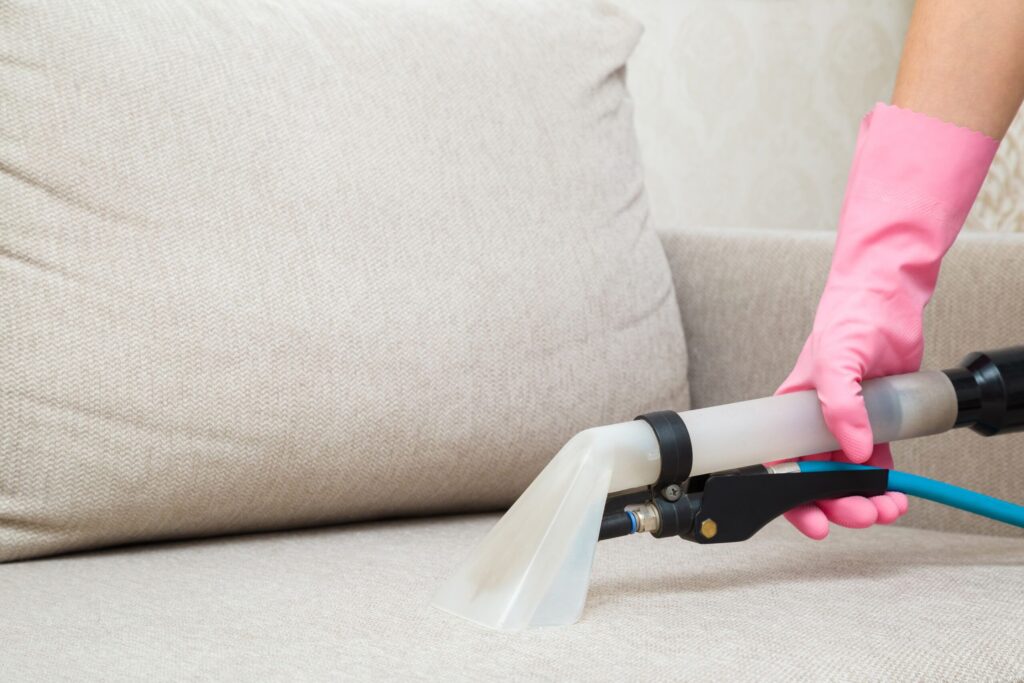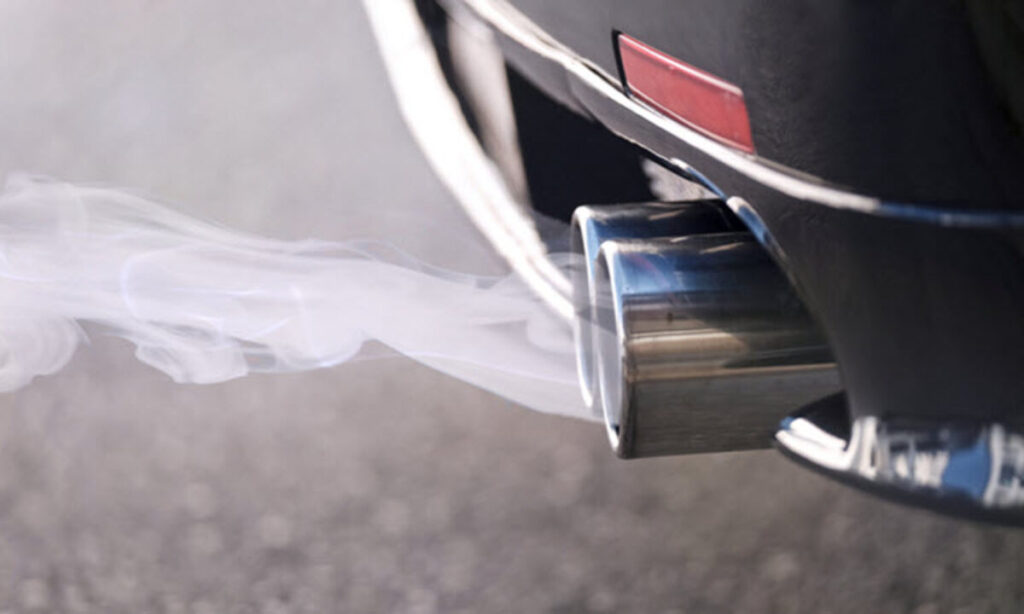Experiencing exhaust odor at home indicates potential health risks, necessitating immediate action to address the issue and mitigate health hazards. First and foremost, try to identify the source of the odor. It could be from a car outside, a malfunctioning appliance, or a ventilation issue.
Moreover, to improve air circulation, open windows and doors and use fans. Clean affected appliances thoroughly with a baking soda solution.
To prevent future issues, maintain appliances regularly, use carbon monoxide detectors, and avoid using fuel-burning appliances indoors. Lastly, consider using commercial odor eliminators or activated charcoal to absorb stubborn odors.
What are the Causes of Exhaust Smell in the House?

Exhaust smells in a house can indicate various issues, raising concerns about safety and potential hazards within the premises.
Carbon Monoxide (CO)
Carbon monoxide (CO) is a colorless, odorless, and tasteless gas. It is produced by the incomplete combustion of fossil fuels like natural gas, propane, gasoline, and oil.
So, it can be very dangerous and even fatal in high concentrations. CO detectors are essential in homes to provide an early warning of CO presence and prevent CO poisoning.
Gas Leaks
Natural gas, which is used for heating, cooking, and other appliances, is typically odorless. However, utility companies add a chemical called mercaptan to give it a distinct, foul odor reminiscent of rotten eggs.
This odor serves as a safety feature to help detect gas leaks. If you smell gas it’s essential to take immediate action. If it is safe to do so, shut off the gas supply and get out of the area. Then quickly call the gas company or emergency services for help.
Blocked Chimneys or Ventilation Systems
Blocked chimneys, vents, or flues can lead to the buildup of harmful gasses in the home. Properly functioning chimneys and vent systems ensure that exhaust gasses, including carbon monoxide, from combustion appliances are safely expelled outside.
Regular chimney and vent inspections are recommended to ensure proper ventilation.
Oil Furnaces or Boilers
Improperly adjusted or malfunctioning oil burners in furnaces or boilers can emit oil smells, indicating potential operational issues. This could be due to issues such as a clogged oil filter, a cracked heat exchanger, or an oil leak.
Regular maintenance of oil-based heating systems is essential to prevent issues and ensure safety.
Sewage Problems
A sewage smell in the home might result from a blocked or damaged sewer line or a broken sewer vent pipe. Alternatively, it could be due to a backed-up septic system.
Aside from the foul smell, this poses health risks, needing prompt attention from a plumber or septic system expert.
Dead Animals
If a small animal like a rodent or bird dies within your home’s walls, attic, or crawl spaces, it emits a foul odor. This smell arises from the decomposition process and can be quite strong. Locating and removing the carcass is necessary to eliminate the smell.
Paint or Chemicals
Strong chemical odors from paint, varnish, solvents, or household cleaners can persist in the air. This is particularly true when there’s inadequate ventilation after their usage. Opening windows and using fans can help dissipate these odors more quickly.
Health and Safety Concerns
Exhaust odors at home especially from combustion byproducts like carbon monoxide or natural gas raise critical health and safety concerns.
Carbon Monoxide (CO) Poisoning
Carbon monoxide is a colorless, odorless gas that can be deadly if inhaled in high concentrations.
It binds to hemoglobin in the blood, preventing the blood from carrying oxygen to cells and tissues.
Symptoms of carbon monoxide poisoning include headaches, dizziness, nausea, confusion, and eventually unconsciousness and death.
Gas Explosions
Gas leaks carry the danger of explosion or fire, particularly if gas concentrations reach levels that can ignite. This can result in significant property damage, injury, or even fatalities
Health Effects of Other Combustion Byproducts
Incomplete fuel combustion can yield harmful substances like nitrogen dioxide (NO2), sulfur dioxide (SO2), and particulate matter.
Exposure to these pollutants can irritate the respiratory system. They can also worsen conditions such as asthma or chronic obstructive pulmonary disease (COPD), and lead to cardiovascular issues.
Mold and Mildew
Damp conditions fostering mold and mildew growth can trigger allergic reactions and respiratory issues. This is particularly concerning for those with allergies or weakened immune systems.
Exposure to Chemicals
Stagnant air in poorly ventilated spaces can exacerbate headaches, nausea, and respiratory issues from strong-smelling chemical products.
Health Risks from Sewage Exposure
Sewage problems pose a risk of exposure to harmful bacteria, viruses, and pathogens. These can lead to gastrointestinal illnesses, skin infections, and various health issues.
Allergic Reactions
Dead animals in the home can attract pests and cause allergic reactions or exacerbate existing allergies and asthma.
Steps to Eliminate Exhaust Smell

If you detect exhaust fumes in your home, swift action is crucial to mitigate potential health risks.
Addressing the issue promptly is essential. Here are some steps you can take to get rid of exhaust smell in your house:
Identify the Source
First, determine where the exhaust smell is coming from. It could be from a vehicle idling outside, a malfunctioning appliance, or a ventilation system issue. If it’s from a vehicle, make sure it’s turned off and moved away from the house.
Activated Charcoal
Activated charcoal can help absorb strong odors. Place bowls of activated charcoal around the affected areas or consider using activated charcoal air purifiers.
Baking Soda
Baking soda is a natural deodorizer that can help absorb odors. To utilize it, position bowls of baking soda around the impacted area. Place them near windows or doors where exhaust fumes could infiltrate the home. The baking soda will absorb the odors over time, but it can take a few days to notice a difference.
White Vinegar
White vinegar is a powerful cleaning agent that can help neutralize odors. To use it, mix equal parts white vinegar and water in a spray bottle. Lightly mist hard, non-porous surfaces, such as countertops, furniture, or walls, and allow the mixture to air dry.
Further, exercise caution when employing vinegar on specific materials. It can harm surfaces, particularly if they’re porous or sensitive to acids. It’s always a good idea to test it on an inconspicuous area first.
Ventilate the Area
Open windows and doors to ventilate the space and allow fresh air to enter.
Utilize fans to circulate air effectively. Turn on kitchen and bathroom exhaust fans to aid in eliminating lingering smells.
Clean the Area
If an appliance, such as a stove or oven, is the source of the exhaust smell, give it a thorough cleaning. By doing this, any accumulated grease or debris is guaranteed to be removed. To remove stains that are difficult to remove, mix baking soda with water and scrub the area.
Check for Leaks
Look closely for any possible leaks in the exhaust system if a furnace, boiler, or other appliance is the source of the exhaust stench.
Verify that all connections are tight and keep an eye out for any soot or discoloration near vents or flues.
Commercial Odor Eliminators
There are many commercial odor eliminators available that are specifically designed to neutralize stubborn odors. Look for products labeled for “exhaust smell” or “vehicle exhaust odor” for the best results.
Professional Cleaning
It could be necessary to hire a cleaning service if the stench is still there. They have access to equipment and specific cleaning solutions that can efficiently get rid of stubborn odors.
Check Your Car
If you suspect your vehicle is the source of the exhaust smell, seek inspection by a mechanic. They can identify and address any underlying issues.
Avoid idling your car in enclosed spaces, such as a garage, and make sure the exhaust system is functioning properly.
Preventative Measures
To prevent exhaust smells in your home, it’s essential to keep your appliances in good condition. Schedule regular maintenance for gas-powered appliances such as furnaces and water heaters. To identify possible problems before they become noticeable, make sure a skilled expert inspects them.
Moreover, make sure that stoves and dryers have working vents that divert emissions outside. Refrain from blocking them with furniture or other items. Additionally, have your home’s ventilation system, including vents and chimneys, professionally cleaned to ensure proper airflow and prevent exhaust buildup.
When using the stovetop, oven or shower remember to activate exhaust fans in the kitchen and bathroom. This helps eliminate cooking odors and moisture, preventing the buildup of exhaust smells.
Clean cooking surfaces, exhaust hoods, and other appliances regularly to prevent spills, grease splatters, and dust buildup, preventing burning odors.
Finally, to prevent sewage gas odors from entering your home, pour baking soda down drains once a month to neutralize them.
FAQ’s
What to do if you smell exhaust in your house?
If your furnace emits a smell like car exhaust, shut it off immediately and ventilate your home. Blocked exhaust pipes can cause combustion gasses to flow back into the house, posing a serious risk.
How do you get rid of exhaust fumes smell?
To reduce exhaust fumes, maintain your vehicle with regular oil and filter changes, and drive responsibly to minimize emissions.
Why does my room smell like car exhaust?
A car exhaust-like smell in your home may indicate improper venting of the furnace, potentially causing carbon monoxide to enter. Contact a professional to inspect and clear any blockages in the vent pipes.
What absorbs bad smells in a room?
Baking soda, white vinegar, coffee grounds, and vodka absorb and neutralize room odors effectively, eliminating them instead of masking them.
Final Words
Addressing exhaust smells in your home is crucial for a safe and comfortable living environment. Identify and remove the odor source, ventilate, and clean affected areas to effectively eliminate the smell from your surroundings. Regular maintenance of appliances and proper ventilation system upkeep are key preventive measures.
